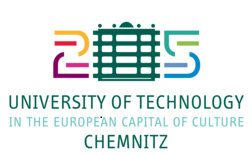The Attitude of 10th-Grade Students in Learning Physics
DOI:
https://doi.org/10.71514/jssal/2022.49Keywords:
Attitude, gender difference, physics, problem-solving, students.Abstract
The study was conducted to understand the attitude of grade ten students of Phuentshothang School, Bhutan, with the purpose of understanding their interest in physics for reflective planning and teaching. The study was carried out using a quantitative research method. Research questionnaires were validated with the Cronbach’s alpha of 0.76, which was greater than 0.7. Data were analyzed with descriptive statistics and Paired t-test for two samples mean using MS excel. The findings revealed high personal interest in learning physics with significant gender differences. Respondents expressed a high positive attitude towards physics in terms of linking physics to the real world with no significant gender difference. They also showed a high positive attitude towards problem-solving in physics with a significant gender difference. The participants responded to have a high positive attitude to time and effort needed to learn physics where no significant gender differences were observed. There was a negative attitude towards understanding laws, theories, and concepts of physics with no gender difference. Recommendations are made to the subject teacher based on the findings.
Downloads
References
Ainley, M., & Ainley, J. (2011). Student engagement with science in early adolescence: The contribution of enjoyment to students’ continuing interest in learning about science. Contemporary Educational Psychology, 36(1), 4-12. https://doi.org/10.1016/j.cedpsych.2010.08.001
Astalini, Kurniawan, D.A., Hadijah, S. Perdana, D.R. (2019). Students’ attitude to physics lesson: A case study in Batanghari Regency Jambi province. Journal Pendidikan Caracter, 9(2), 152-161.
Barros, S., & Elia, M. F. (1997). Physics teacher’s attitudes: How do the affect the reality of the classroom and models for change. Connecting research in physics education with teacher education.
Chala, A.A, Kedir, I., & Wami, S. (2020). Secondary school students’ beliefs towards learning physics and its influencing factors. Research on Humanities and Social Sciences. https://doi.org/10.7176/rhss/10-7-05
Choudhary, F. R., Javeed, T., & Zaman, S. (2019). Learners and instructors’ attitude towards physics achievement at secondary level. Global Regional Review, IV(IV), 441-449. https://doi.org/10.31703/grr.2019(iv-iv).48
Giancoli, D. C. (2014). Physics: Principles with applications. Addison-Wesley.
Godwin, B. H., & Okoronka, U. A. (2015, June). Attitude and academic performance of senior secondary school students in physics in Nigeria [Paper presentation]. International Conference on Education, Social Sciences and Humanities, Turkey.
file:///D:/Research%202021/attidude%20to%20Physics/6.%20attitude%20and%20academic%20performance.pdf
Gurler, A.S., & Baykara, O. (2020) Development of an attitude scale for physics courses and a review of student attitudes. Journal of Baltic Science Education, 19(1), 6-24. https//doi.org/1035225/jbse/20.19.06
Hampden-Thompson, G., & Bennett, J. (2013). Science teaching and learning activities and students' engagement in science. International Journal of Science Education, 35(8), 1325-1343. https://doi.org/10.1080/09500693.2011.608093
Ibrahim, N., A. Zakiang, M. A., & Damio, S. M. (2019). Attitude in learning physics among form four students. Social and Management Research Journal, 16(2), 19. https://doi.org/10.24191/smrj.v16i2.7060
Jones, K.L., & Hamer, J.M. (2022). Examining the relationship between Parents/carer’s attitude, belief and their child’s future participation in physics. International Journal of Science Education, 1-22. https://doi.org/10.1080/095000693.2021.2021457
Kapucu, S. (2017). Predicting physics achievement: attitude towards physics, self-efficacy of learning physics, and mathematics achievement. Asia-Pacific Forum on Science Learning and Teaching, 18(1), 1-23.
Kara, A. (2010). The development of the scale of attitudes towards learning. Electronic Journal of Social Sciences, 9(32), 049-062.
Kaya, H & Boyuk, U. (2011.). Attitude towards Physics Lessons and Physical Experiments of the High School Students. European Journal of Physics Education, 2(1), 23-31.
Lasisi, A.R, & Samaila, G. (2020). Senior Secondary School Students’ Perception of Factors Affecting their Academic Achievement in Physics. International Journal of Education and Educational Research, 3(1), 1-17.
Lavonen, J., Ávalos, B., Upadyaya, K., Araneda, S., Juuti, K., Cumsille, P., Inkinen, J., & Salmela-Aro, K. (2021). Upper secondary students’ situational interest in physics learning in Finland and Chile. International Journal of Science Education, 43(16), 2577-2596. https://doi.org/10.1080/09500693.2021.1978011
Mbonyiryivuze, A., Yadav, L. L., & Amadalo, M. M. (2021). Students’ attitudes towards physics in nine years basic education in Rwanda. International Journal of Evaluation and Research in Education (IJERE), 10(2), 648. https://doi.org/10.11591/ijere.v10i2.21173
Murunga, J.J., Kepher, S., Awinja, S., Enos, E., Kisaka, R., Watiti, B., Malesi, B., Daniel, W., Phanus, N., Wekesa, L., Nyamanga, K., Mwalo, M., & Magut, M. (2019). Attitude of students towards physics: its influence to their academic performance in West Pokot country, Kenya. International journal of advanced research, 7(12), 152-165.
Olusola, O.O., & Rotimi, C.O. (2012). Attitudes of Students towards the Study of Physics in College of Education Ikere Ekiti, Ekiti State, Nigeria. American International Journal of Contemporary Research, 2(12), 86-89.
Organisation for Economic Co-operation and Development. (2016). PISA 2015 results v(I): Excellence and equity in education. Paris: OECD Publishing.
Osborne, J., Simon, S., & Collins, S. (2003). Attitudes towards science: A review of the literature and its implications. International Journal of Science Education, 25(9), 1049-1079. https://doi.org/10.1080/0950069032000032199
Reid, N., & Skryabina, E.A. (2002). Attitudes towards Physics. Research in Science & Technological Education, 20(1), 67-80.
Sen, H.S. (2013). The attitudes of university students towards learning. Procedia-Social and Behavioral Science, 83(2013), 947 – 953.
Soh, T. M., Arsad, N. M., & Osman, K. (2010). The relationship of 21st century skills on students’ attitude and perception towards physics. Procedia - Social and Behavioral Sciences, 7, 546-554. https://doi.org/10.1016/j.sbspro.2010.10.073
Soomro, A.Q., Qaisrani, M.N., & Uqaili, M. A. (2011). Measuring Students’ Attitudes Towards Learning Physics: Experimental Research. Australian Journal of Basic and Applied Sciences, 5(11), 2282-2288.
Trivedi, R., Sharma, M.P. (2013). A Study of Students’ Attitude towards Physics Practical at Senior Secondary Level. International Journal of Scientific and Research Publications, 3(8), 1-4.
Tytler, R. (2014). Attitudes, identity, and aspirations toward science. Handbook of Research on Science Education, Volume II, 96-117. https://doi.org/10.4324/9780203097267-13
Veloo, A., Nor, R., & Khalid, R. (2015). Attitude towards physics and additional mathematics achievement towards physics achievement. International Education Studies, 8(3). https://doi.org/10.5539/ies.v8n3p35
Villa, P., & Candeias, A. A. (2019). Attitude towards the discipline of physics-chemistry and school achievement: Revisiting factor structure to assess gender differences in Portuguese high-school students. International Journal of Science Education, 42(1), 133-150. https://doi.org/10.1080/09500693.2019.1706012
Xavier, M., & Croux, S. J.D. (2016). Attitude of Physics Students towards Physics at College of Science and Technology – University of Rwanda. The Rwandan Journal of Education, 3(2), 1-10.
Downloads
Published
How to Cite
Issue
Section
License
Copyright (c) 2022 Deepak Raj Chetri

This work is licensed under a Creative Commons Attribution-NonCommercial 4.0 International License.
The work is made available under the terms of the Public Offer and the Creative Commons Attribution 4.0 International License (CC BY 4.0). This license allows anyone to reproduce, distribute, and adapt the material in any medium or format, including for commercial purposes, provided that proper credit is given to the creator(s) and the original source.












